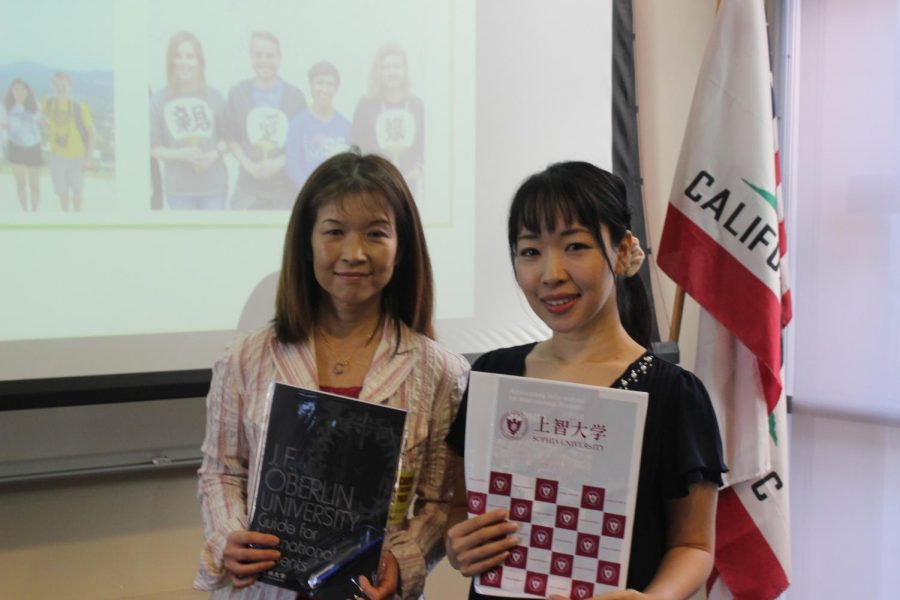The Global 30
October 17, 2019
On Friday, October 11 in the Lecture Hall, Ms. Osawa, Ms. Nakamura, and Mr. Fumitake Nakumara came from Sophia University and J. F. Oberlin University to speak to the Japanese classes about why they should attend universities in Japan. They gave the students a presentation that included information on tuition costs, housing, and courses that each school offered.
Japanese teacher, Mrs. Summers states, “As we all know, university tuition in the United States is extremely expensive unlike other countries around the world. That is why I would like AHS students to know there are other options of schooling around the world, where they could continue their higher level of education. Why not consider studying in Japan? Their tuition is cheaper and so is the cost of living.”
The cost of tuition is very high to attend universities in the U.S. Therefore, students are opting to study abroad. These high costs have led to the development of the “Global 30” project in which internationally recognized universities in Japan offer degree programs and courses in numerous fields all spoken in English. All classes are in English for their international students, and credits are transferable to top universities around the world. There is no Japanese proficiency required to enroll in these universities, but Japanese is taught to all the students and culture instruction is provided. As a result, Japanese becomes a second language to add to one’s resume, along with intercultural skills. Also, 80% of these international students receive partial or complete tuition waivers.
Sophia University (SU) areas of studies include Sophia Programs for Sustainable Futures (SPSF), Green Science in the Department of Materials and Life Sciences, and Green Engineering in the Department of Engineering and Applied sciences. Applications come out in autumn; undergraduate programs are in English and tuition is approximately $13,500 for the first year and $11,500 from the second year on. The application process requires transcripts, SAT/ACT scores or IB Diploma or GCA A levels, TOEFL or IELTS score, recommendation letters, and an essay of 500 words. SU also has many dormitories off and on campus for students, all owned and managed by Kyoritsu Maintenance.
Green Science Program Student, Choi Wonjoon explains, “As the son of a diplomat, I have traveled around the world and have encountered many unique cultures and environments. Through my journey, the high levels of pollution from third-world countries left a great impression on me to pursue a future in restoring the environment. The Green Science program not only has provided the resources to facilitate my dream, but also an exceptional environment and community which heightened and stimulates skills intellectually and socially. The connections I made with colleagues and professors in this international community was a priceless experience. The small class sizes allow professors to interact with each student individually and accommodate the source according to the students’ needs.”
Another school is J. F. Oberlin University, in which 740 exchange students are currently enrolled and a total of 849 teaching staff. Their exchange and study abroad program is either one semester or one academic year (two semesters). They have three specialized courses in global communication: English, Chinese, and Japanese. Tuition fees for their school vary depending on each program. For example, the Masters program’s first-year dues are approximately $9,900.
Eri Nakamura from J. F. Oberlin University states, “Many of the students in J.F. Oberlin University have an experience studying abroad. While pursuing a field of your dream, you will make many Japanese and international friends and learn together. We welcome you to join us and expand your horizons.”
All in all, universities in Japan are growing rapidly and leave students debt-free after graduation with affordable living and schooling. If you also choose to apply, you do not have to go to Japan to take the entrance exam; you can take it in the U.S and there is document screening. This is a great real-world experience to attend college internationally and embrace another culture. For more information, you can see Mrs. Summers, Japanese teacher in room E-105.

